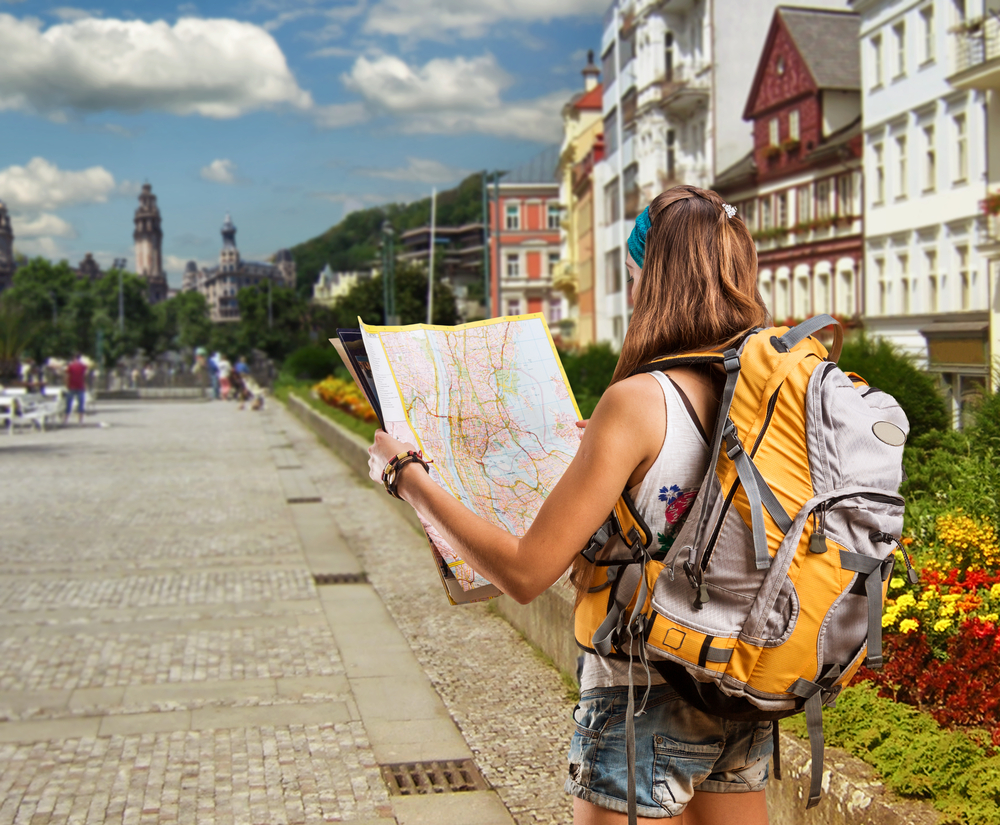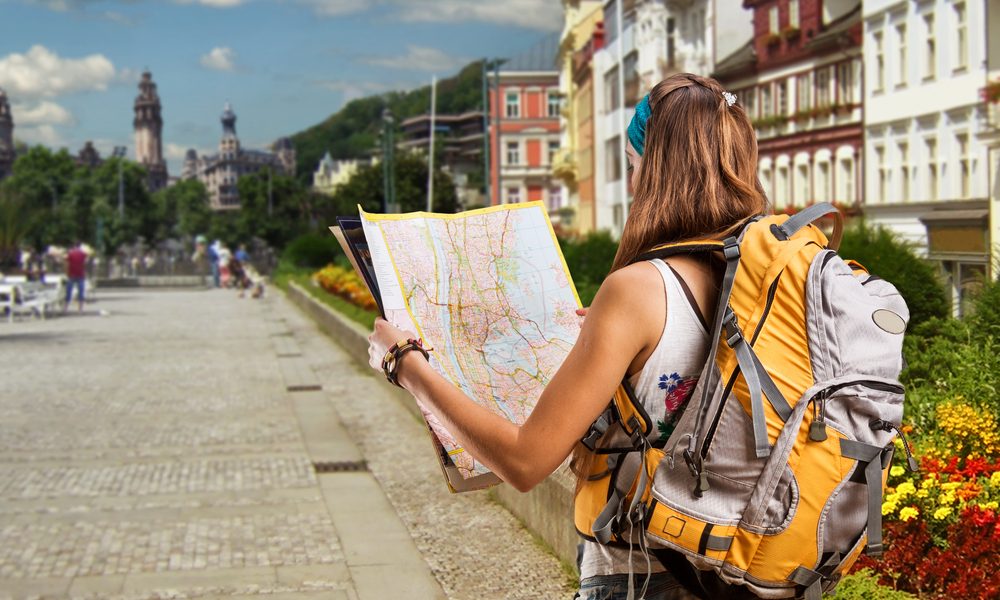A backpacking trip is liberating and a wonderful opportunity to enjoy life and the respective destinations to their fullest. A European backpack trip is one of the biggest dreams of every travel enthusiast. It is also a learning process where one learns from their experience through the various cultures across Europe.
Though backpacking sounds intimidating, especially one decides to go solo. The reality is that Europe is an ideal destination for all types of trips including solo, couples, or group backpacking trips. To enjoy the maximum out of the trip, the best way is to avoid as many mistakes as possible. The best way to do so is to know and understand the basic requirements.
Let’s dig into the prospects, ups, and downs of a European backpack trip and learn about backpacking tips for beginners.
Why go backpacking to Europe?
The major reasons why Europe is a dream destination for almost everyone, is its serene beauty, the plethora of interesting places ranging from beaches, busy cities, to the various mountains for hiking, skiing, etc.
Each country in this continent has a different story to tell. The biggest advantage here is that one can visit several countries with a single type of visa. One can easily find the busiest place or a quiet off-beat location to spend their holidays.
Europe has an extensive and convenient public transportation system. Trains and buses are the most cost-effective options. They will be lighter on the purse and are available connecting internationally. These are the most important factors when setting out for backpacking.
Backpacking tips for beginners
As a beginner, a simple back[acking trip can be terrifying in its planning phase. Planning a Europe backpacking trip can be more difficult. To ease your worries here are some beginner backpacking tips to help you plan, pack, and enjoy well.
- Dig into social media
The primary step is to find out as much information about Europe and European countries. The best way is to dig through social media platforms where people share their real-time experiences through pictures and blogs. You can connect with them to find out more about those destinations.
- Plan ahead
A well-planned trip ends well and lets you enjoy the time spent. Planning for backpacking involves exploring your destinations. Europe is not a single country so you need to choose your country or countries well to get the necessary arrangements done well. Every country is different in Europe in terms of expenses. Some may be more expensive than others. So budgeting is the next step.
- Budgeting
In Europe, travelling to some countries can be pricey while there are extremely cheaper countries. Set your budget for the entire trip including the visa, tickets, accommodation, and other expenses. Then start exploring the countries. Countries such as Sweden, Switzerland, Finland, Iceland, etc are pricey. The Balkan and Baltic countries such as Lithuania, Albania, Bulgaria, Estonia, etc are among the cheapest. The budgeting includes choosing the travel options, suitable accommodation, and other expenses during the stay in each country.
- Choosing a proper backpack
Believe it or not, getting a proper backpack that is suitable for you and convenient during the journey is a huge factor. You can choose a bigger, but not too large backpack having 40-46 L capacity, for your Europe trip. Sometimes, it may not be the only luggage you will need. So plan well and choose your necessary items carefully to decide on the size of the backpack or the number of other luggage items you would need.
- Explore outdoors
Though the primary vision one would have about Europe will be the popular cities. But they are not the only thing Europe is about. There are plenty of options of off-beat locations and wonderful places to explore in every country. Indulge in some hiking, skiing, or other activities, if possible. This is where the heart of Europe lies.
Best accommodation in Europe
The well developed European countries have multiple options for accommodation. You may choose the most luxurious hotel to the cheapest hostel facility for your stay. It is important to find out what options your chosen countries or cities have to offer. This will help you plan your budget and set aside additional for other expenses.
Rented apartments will be available for an extended stay, paid rooms are available in several cities, and budget-friendly rooms are popular in most European cities. These options are viable for solo travellers and couples.
In the mountainous area, one can find wood cabins, ski resorts, camping options, etc, depending upon the destination.
Mode of Transportation
Though Europe has a well developed public transport system including airports in the popular cities. Euro rail and buses are the most sought after options. If you are looking for a cheaper option, buses are the best bet.
Buses in Europe are available for local transportation in the major cities such as the London to Oxford bus, intercity travel in a country such as Zadar to Zagreb bus, Segovia to Madrid bus, or for a cross-border journey from one country to another. They are cheaper but offer the high class or basic amenities in their buses, depending upon their routes.
Buses are also connecting the airports to the local city centres, with other cities or even to another country. When booking the flights, make sure that you have booked ahead to avoid the last-minute rush and higher ticket rates.
Best travel backpack for Europe
A backpack for travelling Europe holds a significant role. It is easier and more convenient than taking a rolling suitcase. One of the backpacking tips for beginners is to get the right-sized backpack that can carry all your essentials without any hitches.
The purpose of travel, the activities you will be participating in, and the destinations you travel to are the most important decisive factors while choosing a backpack.
Bags with multiple pockets and sections are more functional. Bags vary in their capacity and an average bag will be anywhere between 40-45 L for solo travellers.
The bag must be durable, preferably waterproof and comfortable on your back. It must also have provisions to attach or place other travel gear for hiking and other purposes.
How much time is needed in Europe?
The least amount of time required to see some of the major destinations in Europe is 2 weeks. It will be sufficient for a quick trip across some of the popular cities and for spending some time on each of them.

Most often, each popular European city will require 2-3 days. So you can calculate accordingly to see how many days you would need to plan for.
As one of the backpacking tips for beginners, it is better to choose 3 or a maximum of 4 countries for your trip. It will be easier to choose the countries that are next to each other for convenient travelling. It will also give you enough time to explore each country within 2 weeks.
Best time for backpacking in Europe
Like any country, Europe is busy with tourism during the summer months. Summer in Europe is from June to August. The days are longer at this time with the sunset late at 10 pm in some countries. Sun can be worrying with its heat in some areas but overall comfortable.
Months from September – November will be less crowded but still busier when compared to the winter season. Fall is one of the best times to enjoy nature in Europe.
November to February is the winter season. During this time, most countries are not suitable for a visit. But it is also the time for skiing in the snow-covered mountains.
The best time to visit Europe depends on the countries that you choose and the weather conditions there. The peak summer season will be more expensive than the offseason during fall. Winter will be cheaper than the other two seasons.
You may like to read: How to pack for backpacking

